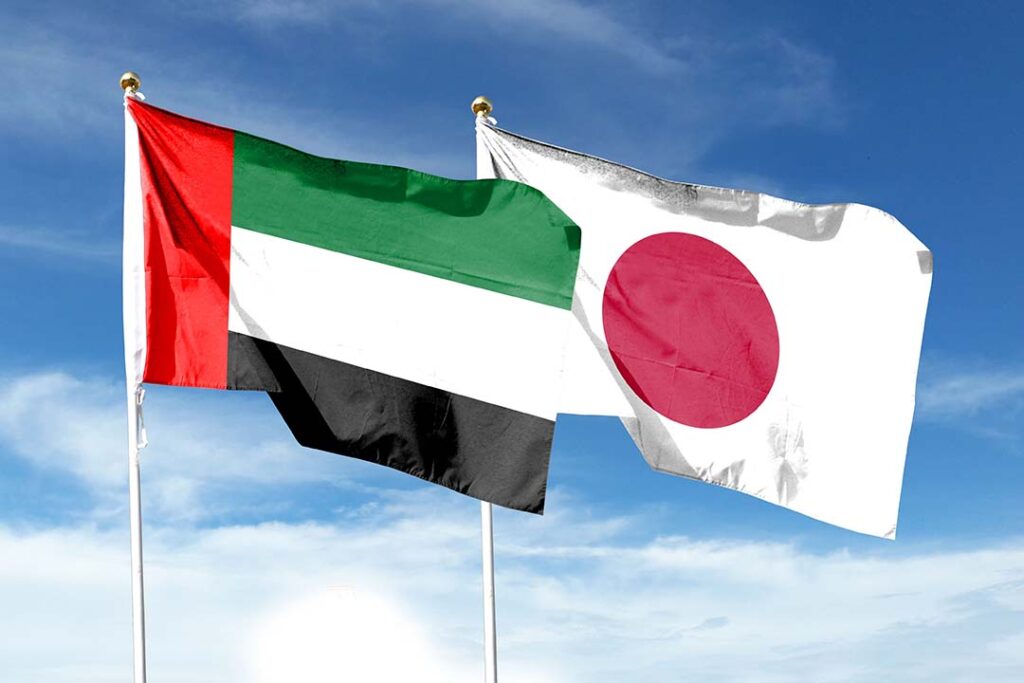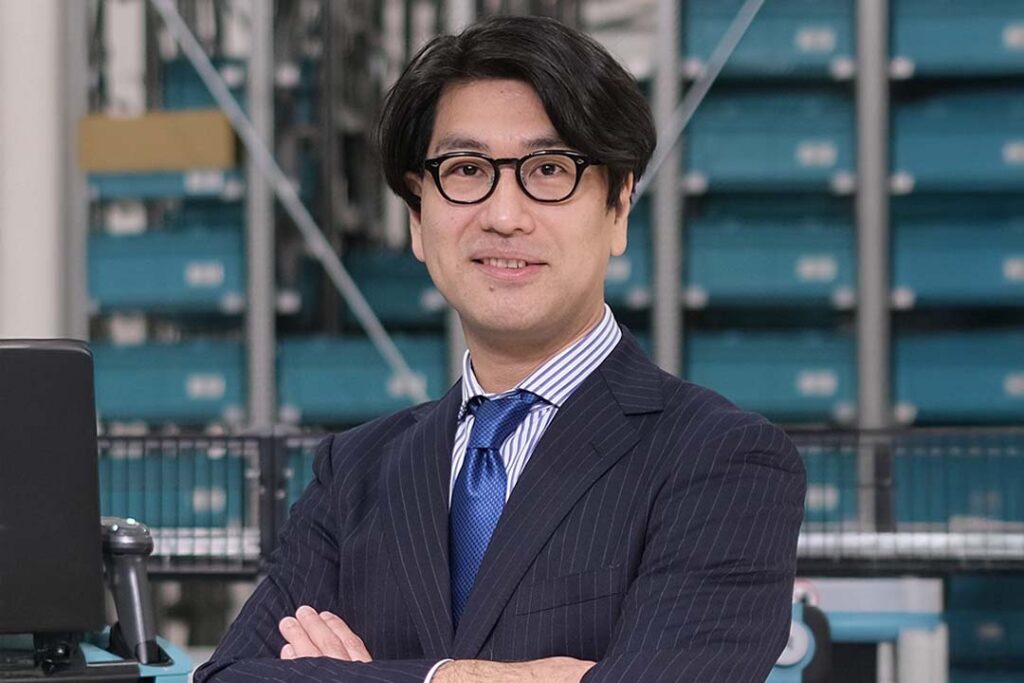Japan and the UK share a solid, strategic friendship built on hundreds of years of bilateral ties—and beyond. It is a bond that, over centuries, has resulted in a profound sense of mutual respect, robust cooperation across a wide range of fields, and a rich cultural exchange. To date, this relationship continues to thrive and is, in fact, more important than ever, given the current international climate. His Excellency Hajime Hayashi, Japanese Ambassador to the UK, provides invaluable insight, as the two nations commemorate 165 years of diplomatic relations, and to mark the coronation of His Majesty, King Charles III.
How would you characterize the current state of UK-Japan bilateral ties, celebrating 165 years of diplomatic relations?
The cordial relationship between Japan and the UK reflects the long history of interaction between the peoples of our two countries. While it is true that this year marks the 165th anniversary of the signing of the Anglo-Japan Treaty of Amity and Commerce, one can also argue that our two nations’ relationship stretches back over 400 years. Our story begins in 1613, when John Saris, the captain of the first English ship to reach Japan, had an audience with Hidetada Tokugawa, the second Shogun of the Edo Shogunate. Saris returned to England with the first official gifts from the Shogun to James I, then King of England, including a set of samurai armor.
This January, following his previous trip last May, Prime Minister Fumio Kishida visited the UK and had a bilateral summit meeting with Prime Minister Rishi Sunak, who chose to host him at the Tower of London, the location where the armor gifted by Japan 400 years ago is displayed. At this symbolic venue, our two prime ministers signed the Reciprocal Access Agreement (RAA) to further deepen our security and defense cooperation. During the meeting, in addition to the security field, the two leaders exchanged views on the Japan–UK economic relationship, including the UK’s accession to the Comprehensive and Progressive Agreement for Trans-Pacific Partnership (CPTPP), and other pressing international issues such as the situations in Ukraine and in East Asia. They also confirmed that they would closely work together toward the G7 Hiroshima Summit, which Japan will chair this year. The meeting proved to be a remarkable opportunity to demonstrate that Japan and the UK have become global strategic partners. Certainly, it was my honor to witness this historic event involving our two prime ministers at such an iconic location.
As strategic partners, Japan and the UK have steadily deepened their bilateral cooperation in a wide range of fields, including diplomacy and security, economics and business, and culture.
Hajime Hayashi, Ambassador of Japan to the United Kingdom
Last year, we faced a very sad occasion in the passing of Her Majesty Queen Elizabeth II, followed by the accession of King Charles III to the throne. His Majesty the Emperor together with Her Majesty the Empress attended the state funeral and conveyed their deepest condolences to His Majesty the King, gestures which were warmly welcomed by the British people and left a favorable impression in the UK. The visit was also highly appreciated back in Japan. Their Majesties’ presence at the funeral symbolized the deep-rooted bonds between the Imperial Family of Japan and the Royal Family of the UK as well as the ties between our two peoples.
As these developments show, the relations between Japan and the UK, both at the governmental and at the people-to-people levels, are stronger than ever, and I am truly fortunate to be serving as the Ambassador of Japan to the UK at such a time.
What milestones come to mind, in these bilateral relations?
As strategic partners, Japan and the UK have steadily deepened their bilateral cooperation in a wide range of fields, including diplomacy and security, economics and business, and culture.
In the diplomatic and security field, high-level visits including the Prime Ministers and Foreign Ministers of the two countries continue. Prime Minister Fumio Kishida in particular has visited the UK for three consecutive years since 2021 to hold summit meetings with his counterparts. Following the Japan-UK Foreign and Defence Ministerial Meeting (“2+2”) and the port call of the aircraft carrier HMS Queen Elizabeth in Japan in 2021, the cooperation between our two countries in the security and defense field has been reinforced by the Maritime Self-Defence Force training vessels’ port call in the UK and “Vigilant Isles 22”, the field training exercise by the two forces, last year. Furthermore, we have made very significant and concrete progress, including the signing of the RAA by the respective prime ministers in January this year and the joint development of the next-generation fighter aircraft by Japan, the UK and Italy (GCAP: Global Combat Air Programme), which was announced last December.
In the economic and business field, our two countries signed the Japan-UK Comprehensive Economic Partnership Agreement (EPA) in 2020, which became the very first new EPA that the UK had ratified after Brexit. Even after Brexit, Japan and the UK remain key economic and business partners. In fact, around 1,000 Japanese firms maintain their operations in the UK and employ approximately 170,000 workers.
The Japan-UK economic and business relationship has been constantly developing, featuring investment in areas such as offshore wind, hydrogen, data centers and space, as well as cooperation in the nuclear sector. Japan welcomes the substantial conclusion of the negotiations for the UK’s accession to the CPTPP, which was announced on 31st March.
The cordial relationship between Japan and the UK reflects the long history of interaction between the peoples of our two countries. While it is true that this year marks the 165th anniversary of the signing of the Anglo-Japan Treaty of Amity and Commerce, one can also argue that our two nations’ relationship stretches back over 400 years.
Cultural exchange is also a cornerstone of our strong relationship. The level of interest in Japanese culture among the British people is exceptional. This embraces people from all walks of life, including members of the Royal Family, and covers a variety of pursuits and art forms. The global pandemic was a difficult period for international cultural exchange, but the situation is steadily returning to normal. The Royal Collection Trust exhibition “Japan: Courts and Culture”, a resounding success which closed in February, showcased the Collection’s holdings of Japanese works of art, which highlights the long relationship of the two countries forged through the exchange of gifts between the Japanese and British imperial and royal families. In similar vein, the play “My Neighbour Totoro” by the Royal Shakespeare Company was a big hit, attracting a total audience of more than 130,000 people in the just over three months during which it was performed in the UK. It was a great success for cultural relations between Japan and the UK, winning six Olivier Awards, the most prestigious awards in British theatre. Indeed, it has been announced the play will return to London this November. Meanwhile, Japan’s significant easing of border restrictions on British nationals last October should give a further boost to interaction among our citizens.
What opportunities do you see for continued cooperation and collaboration between the UK and Japan?
Japan and the UK are global strategic partners that share the fundamental values of freedom, democracy, human rights and the rule of law.
Around us, we see attempts to threaten the free and open international order that underpins the values of our countries. Japan and the UK both oppose any attempts to change the status quo by the use of force and any threat of the use of nuclear weapons anywhere in the world. Both countries are economic powers which uphold a market economy and free trade and promote science, technology and innovation. We, therefore, share the capacity and responsibility to work together to tackle global challenges such as climate change, energy and economic security.
The UK set out its ’tilt’ towards the Indo-Pacific in the Integrated Review published in 2021, and has shown a clear intention to cooperate with Japan towards the realization of a ‘free and open Indo-Pacific’. In March the UK reaffirmed the contents of its Integrated Review, in which it set out to engage in the Indo-Pacific region in a more enduring manner and as a permanent pillar of its international policy. In this context, the UK`s accession to the CPTPP is a hugely important step. By the same token, we stand united with other G7 countries in our firm response to the situation in Ukraine, having imposed strong sanction son Russia and shown our unequivocal support for Ukraine. In addition, Japan holds the Presidency of the G7 this year as well being a non-permanent member of the UN Security Council. I firmly believe that our two governments are well placed to cooperate further and to play a leading role in the international community’s endeavors concerning various global issues through these international fora. The Hiroshima G7 Summit, which starts on 19 May, will be the prime opportunity for Japan and the UK to demonstrate our determination, together with the G7 and non-G7 friends who share the same values, to tackle the critical issues that the international community is currently facing.
Cultural exchange is also a cornerstone of our strong relationship. The level of interest in Japanese culture among the British people is exceptional. . This embraces people from all walks of life, including members of the Royal Family, and covers a variety of pursuits and art forms.
Mutual understanding between our two peoples is indispensable to further strengthening the bilateral partnership. Life in both Japan and the UK is returning to pre-Covid levels in the social, economic and cultural spheres, and the outlook is getting steadily brighter. With the relaxation of the rules governing entry to Japan last year, the number of people travelling between the UK and Japan is steadily increasing. Last year, after an interruption due to the pandemic, we fully resumed our Japan Exchange and Teaching (JET) Programme and, as a result of the scheme, there are currently some 700 young Britons teaching English and fostering international exchange all over Japan. Cultural activities in London are also back, with many events taking place at Japan House London. I look forward to an increase in mutual exchange at a broader national level, including among tourists and students. As Ambassador of Japan to the UK, I will make the most of these opportunities to further strengthen UK-Japan cooperation in all areas, including diplomacy, security, economy and business as well as culture, and to take the Japan-UK partnership to new heights.
How is the coronation of His Majesty King Charles III especially significant to the Japanese people?
Many in Japan are well aware of the fact that the late Queen Elizabeth II demonstrated a willingness to embrace change towards a more open Royal Family while upholding British traditions during her 70-year reign. And the Imperial Family of Japan enjoys close ties with the British Royal Family, with the Emperor and Empress both having studied in the UK. Against this backdrop, the Japanese people feel a special affinity with the British Royal Family.
As for His Majesty King Charles III’s coronation on 6th May, the Crown Prince and Princess Akishino are due to attend the ceremony and to convey their heartfelt congratulations to His Majesty the King and to the British people on behalf of the Japanese people. It is a matter of record that his mother, the late Queen Elizabeth II, made a great contribution to the development of strong Japan-UK relations through her exchanges with Japan, and I have no doubt that His Majesty will be keen to further deepen the friendship between our two countries.
Meanwhile, the Japan–UK relationship has become increasingly important not only in terms of bilateral relations but as regards the global aspect. With the crowning of His Majesty the King, the Japanese people have developed a keen interest in the UK, and now is the time for Japan and the UK to further strengthen bilateral relations based on our 400-year history of friendship, and to unite with other friendly nations with which we share common values in order to address the host of challenges facing the international community.












